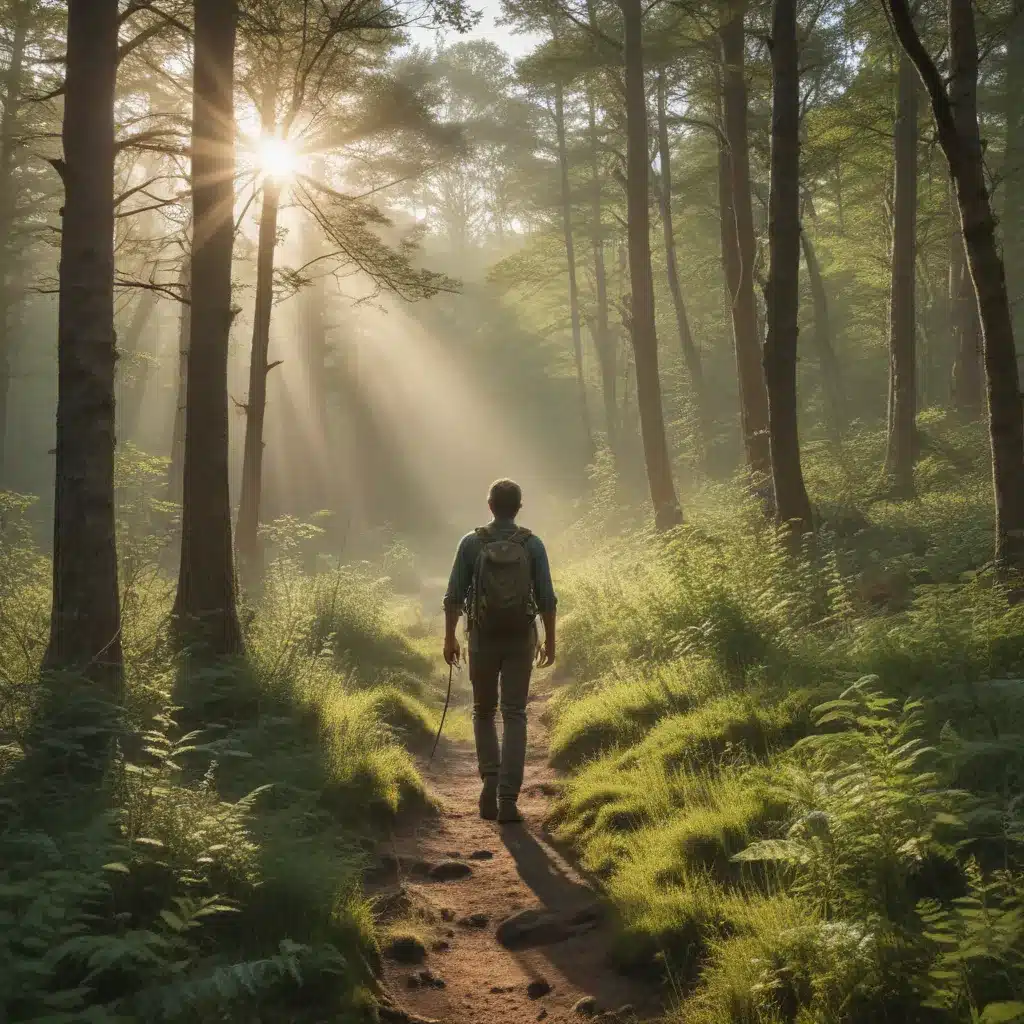
The Allure of the Highlands
As I gaze out over the rugged, heather-clad hills of the Scottish Highlands, I can’t help but feel a profound sense of connection. The towering Munros stand as silent sentinels, their rocky peaks cutting against the moody skies like ancient guardians of this wild and untamed land. It’s no wonder that this region has long captured the hearts and imaginations of adventurers, nature lovers, and those seeking to escape the relentless pace of modern life.
Loch Ness Shores, our family-owned campsite nestled in the heart of this breathtaking landscape, is the perfect base from which to explore the Call of the Wild. Whether you’re drawn to the serene beauty of the glittering lochs, the thrill of conquering a mighty Munro, or the simple pleasure of reconnecting with the rhythms of the natural world, this place has a way of stirring the soul.
As I wander the trails and sit by the crackling fire pits, I’m reminded of the profound wisdom that can be found in this land. The Gaelic language, with its rich vocabulary for the nuances of the natural world, whispers ancient secrets that challenge the sterile language of our industrialized society. Perhaps it’s time we all relearn the grammar of animacy, the way of speaking that sees the world not as a collection of lifeless “its,” but as a tapestry of living, breathing kin.
Reclaiming the Language of Kinship
In my travels, I’ve encountered the work of Robin Wall Kimmerer, a botanist and member of the Potawatomi Nation, who eloquently explores the power of language to shape our relationship with the natural world. As Kimmerer explains, the Potawatomi language is imbued with a deep respect for all living beings, using distinct verb forms to describe the “beingness” of plants, animals, and even geological features.
“Both nouns and verbs come in two forms, the animate and the inanimate. You hear a blue jay with a different verb than you hear an airplane, distinguishing that which possesses the quality of life from that which is merely an object.”
Contrast this with the English language, where we so casually relegate the non-human world to the status of “it” – a lifeless, interchangeable object to be used and exploited as we see fit. Kimmerer argues that this linguistic tendency reflects a deeper cultural attitude of human exceptionalism, one that has fueled the ongoing destruction of our global ecosystems.
The Resurgence of Animacy
But there are glimmers of hope. Around the world, we’re witnessing a resurgence of legal and political initiatives that seek to grant personhood and inherent rights to nature itself. In New Zealand, the Whanganui River was declared a legal “person,” with its own inalienable rights to wellbeing and protection. In Ecuador and Bolivia, the constitutions enshrine the rights of “Mother Nature,” while in Switzerland, animals are now defined as “beings” rather than mere objects.
This shift in perspective is mirrored in the grassroots efforts of indigenous communities, who are reclaiming the language of kinship and animacy as a powerful tool for environmental stewardship. The water protectors at Standing Rock, for example, spoke of the river as a sacred relative, worthy of fierce protection against the encroachment of fossil fuel pipelines.
Rewilding Our Language, Rewilding Our Minds
As I ponder these developments, I can’t help but wonder: what might happen if we all embraced the grammar of animacy? What if, instead of seeing the natural world as a collection of resources to be exploited, we spoke of our “kin” – the trees, the rivers, the very land beneath our feet? Kimmerer has proposed the introduction of new pronouns into the English language, such as “ki” (a being of the living earth) and “kin” (the plural form, encompassing all our non-human relatives).
The implications of such a linguistic shift could be profound. By recognizing the personhood and inherent value of the more-than-human world, we might just unlock a deeper wellspring of compassion, respect, and reverence. Perhaps this could be the antidote to the rampant individualism and human exceptionalism that have driven us to the brink of ecological disaster.
Heeding the Call of the Wild
As I sit by the crackling fire at Loch Ness Shores, watching the dancing flames and listening to the whisper of the wind in the pines, I can’t help but feel a renewed sense of kinship with this wild and ancient land. The language of animacy, with its recognition of the inherent personhood of all living beings, seems to resonate with the very spirit of this place.
And so, I invite you to heed the Call of the Wild. Come to the Highlands, where you can immerse yourself in the timeless rhythms of nature, and perhaps rediscover the lost language of our shared kinship. Who knows what ancient wisdoms might be recovered, what new ways of seeing the world might emerge, when we finally learn to speak the language of the land?

